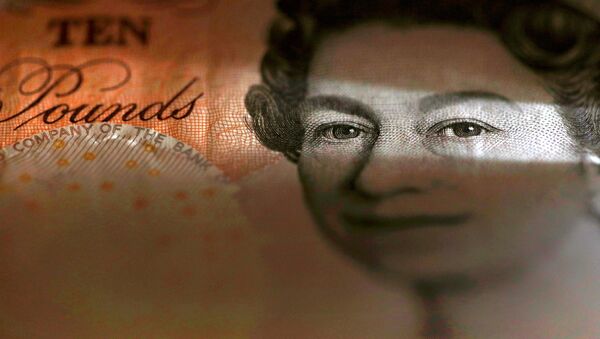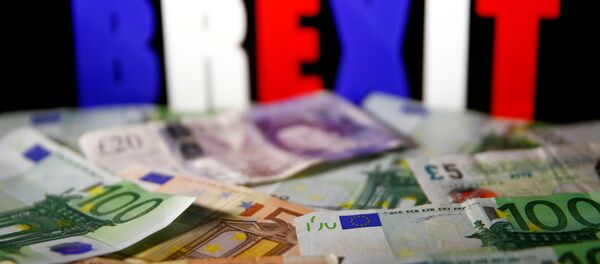Kristian Rouz – UK’s inflation unexpectedly remained at its June levels last months despite earlier predictions of a slight uptick in consumer prices, suggesting that Brexit-related risks to Britain’s economy are gradually subsiding. Even though retail sales surpassed expectations in July, inflation remained muted, mainly due to sterling’s FX rate stability in the import-dependent economy.
Still, rising levels of consumer debt and still-rife uncertainty over the Brexit process are weighing down broader UK economic growth. The easing inflationary pressures, on the other hand, have allowed the Bank of England (BoE) to further postpone a hike in base interest rates, meaning that GDP growth projections for the third quarter are a bit brighter at this point.
A drop in gasoline prices held down gains in inflation, while the most prominent consumer market items, such as clothes, utilities, and food, predictably rose in price. The retail price index advanced to 3.6 percent, surpassing the forecast of 3.5 percent, because retail sales in July recorded an uptick to 0.6 percent after two months of either declines or tepid expansion.
UK consumers keep buying things despite the only modest growth in wages. The tight labor market and the abundance of jobs have helped support consumer sentiment. London’s financial sector is currently bleeding talent, with many transnational corporations moving their operations to the continent, but many jobs remain – to be filled by the local workers.
Yet, the advance in UK household debt is an alarming factor. Ex-Chancellor of the Exchequer (2007-2010) Lord Alistair Darling of the Labour Party said that the burden of the rising consumer debt is currently a lesser concern than 10 years ago because the financial system is now stronger than it was. Still, Lord Darling said, high levels of indebtedness are never good, neither for personal finance, nor for the broader economy in the longer-term.
"The lesson from 10 years ago is that something that can start as apparently a small ripple in the water can become mountainous seas very quickly," he said on BBC Radio 4's Today broadcast. "When interest rates go up, and they will go up, if not this year then certainly next year, and suddenly people find they are going to be paying more in their monthly payments, that's when you need to watch out."
Higher bank capitalization today might offset most risks associated with the climbing household debt burden, Lord Darling said.
In the meantime, the BoE policymakers decided to keep borrowing costs at the ultra-low 0.25 percent for now, fueling the broadband borrowing spree. The Monetary Policy Committee reaffirmed their 2-percent inflation target, which they hope to reach within the coming years. The BoE expects the UK inflation to accelerate closer to the year-end, driven by the ongoing expansion of the consumer market.
Inflation will ease next year, the central bank said, and a hike in base borrowing costs might occur sometime in 2018 in line with the UK Cabinet’s fiscal stimulus, if such is enacted.




